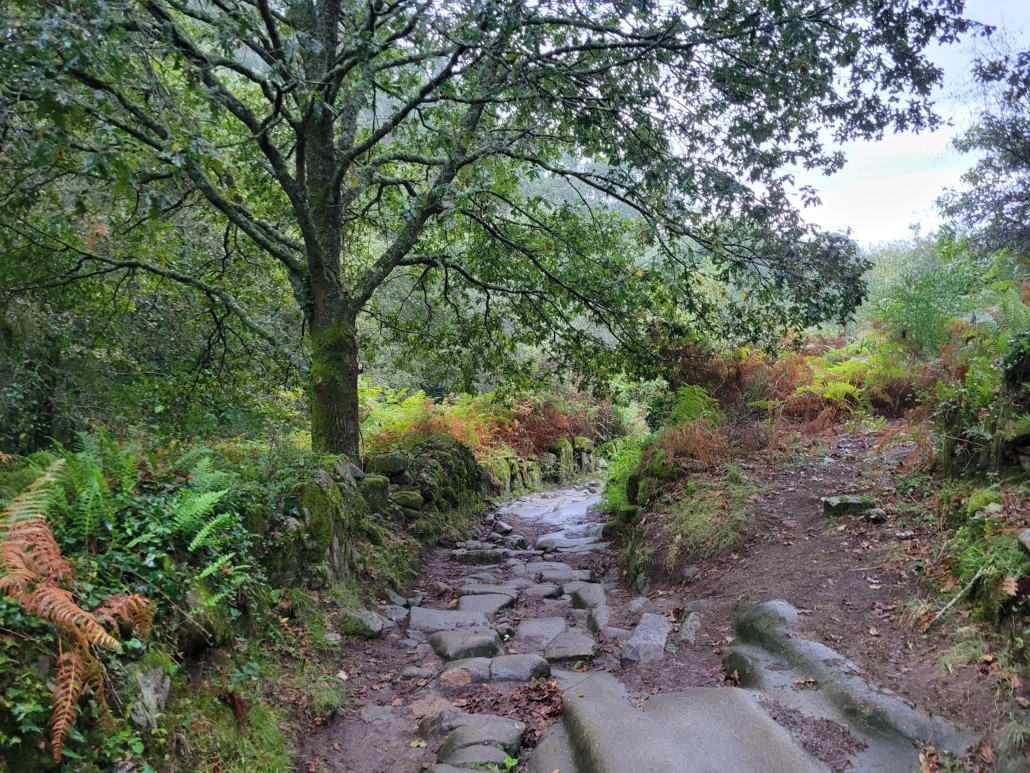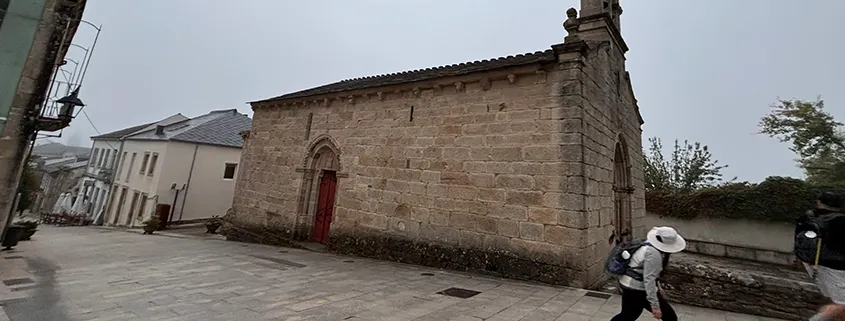Four Caminos: A Doctor’s Journey and a Lifetime of Lessons
The Four Caminos de Santiago are more than just a pilgrimage it is an experience that evolves with every step and every stage of life. On a recent episode of The Way to Your Why podcast, we spoke with Francisco, a doctor from Seville, Spain, who has completed four Caminos and shared his transformative journey from adolescence to adulthood through the Camino de Santiago.
Four Caminos, Four Perspectives
Francisco first walked the Camino Francés from Ponferrada at just 15 years old as part of an organized group with his local church. It was a joyful experience, filled with youthful energy and a sense of adventure. He later returned to the French Way at 36, walking from Sarria with a completely different mindset, seeing the Camino through the eyes of an adult seeking reflection and personal growth.
His journey continued with the Portuguese Central Way from Tui, and his favorite, the Primitive Way from Oviedo known for its solitude, rugged landscapes, and deep historical roots.
From Youthful Adventure to Spiritual Reflection in four Caminos
Walking the Camino as a teenager was a liberating experience for his first time away from home, disconnected from technology, and surrounded by peers. Francisco recalls using public phone cabins to call home, a stark contrast to today’s mobile-connected world.
“Back then, there were no GPS apps, no instant messages. You just followed the yellow arrows and trusted the path,” he said. “It was a more immersive experience, living in the moment without distractions.”
Years later, his adult Caminos were marked by a deeper connection to history, faith, and self-reflection. While youthful Caminos were about fun and camaraderie, his later journeys became a spiritual retreat, a chance to reset after years of intense medical training and treating COVID-19 patients.
Caminos Change, But Some Things Remain
Francisco noted how much the Camino has evolved over the years. Infrastructure has improved, with more hostels, way markers, and support services. However, some elements remain timeless, such as the stone bridge between Melide and Arzúa, which he found unchanged after 20 years.
The Camino still offers the same fundamental lessons: adaptability, perseverance, and gratitude.
Albergues vs. Hotels: Two Ways to Experience the Camino
Francisco has walked the Camino in both traditional albergues (pilgrim hostels) and more comfortable accommodation like hotels and private rooms. As a teenager, he embraced the communal aspect of albergues, even sleeping in sports centers and
churches.
“When you’re 15, you don’t mind sleeping in noisy dorms or showering with a hose. But now, I prefer a comfortable bed to recover properly.”
Despite preferring hotels now, he acknowledges that albergues create a strong sense of community, where pilgrims share meals, stories, and laughter. It’s not about where you sleep, but the connections you make.

The Magic of the Primitive Way
Among his four Caminos, the Primitive Way from Oviedo to Santiago holds a special place in his heart.
“It’s quieter, more challenging, and offers a level of solitude that you don’t find on the busier routes. There were days I walked 15 km without seeing another pilgrim just me, the mountains, and the path.”
For those seeking a more introspective, less commercialized Camino, he highly recommends this route.
The Camino Is for Everyone
Francisco emphasizes that the Camino is a personal journey, some walk for faith, others for adventure, and some simply for a break from routine. There’s no “right way” to do it, and whether you stay in albergues or hotels, walk alone or in a group, what matters is the experience of the journey itself.
“The Camino is about giving yourself time. In today’s world, that’s the greatest gift you can have. Disconnect from social media, focus on your steps, and open yourself to the unexpected. The Camino always provides.”
Next Stop: Finisterre and Muxía
Francisco’s journey isn’t over yet. Next month, he will be walking the Finisterre-Muxía route, an extension of the Camino leading to the legendary “End of the World.” As he continues his pilgrimage, he carries with him the lessons of his past Caminos: gratitude, resilience, and the willingness to embrace the unknown.
Buen Camino, Francisco!
Listen to the full podcast episode here



